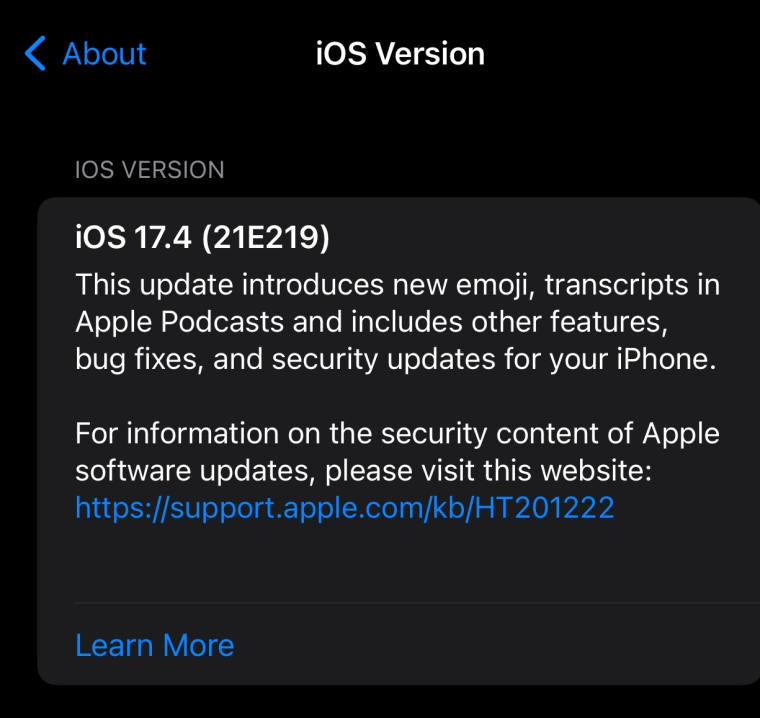
Apple has released the final version of its iOS 17.4 mobile operating system after beta testing the software with developers, bringing in substantial changes to satisfy the European Union's Digital Markets Act (DMA).
The EU seeks to rein in tech giants such as Apple, Google, Amazon, Microsoft and Meta with the DMA, to prevent them from abusing their market power.
Among the changes is support for alternative app stores in the EU. Users in the European bloc can now install apps and updates for them, from marketplaces other than Apple's official App Store.
Enabling third-party app stores forced Apple to create a baseline review system for all apps, called Notarisation. This is to ensure the integrity of apps and to protect users, and to provide information prior to downloads.
Some 600 new application programming interfaces (APIs) were added to iOS 17.4 for the purposes of the DMA, along with payments processing changes and safeguards such additional malware protections.
Nevertheless, Apple warns that "for apps downloaded from alternative app marketplaces, some features may not work as expected."
This could be features such as restrictions on in-app purchases in Screen Time, sharing purchases with users Family Sharing Groups, and Ask to Buy which are not supported with third party marketplaces.
The third-party marketplaces might have apps with content that's not offered on Apple's App Store. This includes pornography, hate speech, weapons, encouragement to consume tobacco or vape products, illegal drugs or excessive amounts of alcohol.
It is possible to prevent installation of such apps by setting age restrictions on iOS devices Apple said.
Apple also said it has limited ability to support users impacted by issues with apps not downloaded from its own App Store, and suggest people contact the developers of them instead.
Support for the third-party app stores is limited to the EU, and users will have to be in the block to access them and to get new programs from them.
Updates will be available for up to 30 days if users leave the EU, but not after that period of time, Apple said.
So far, German enterprise software provider Mobivention has launched an app store, with Ukrainian developer MacPaw planning to launch its SetApp subscription based marketplace in April this year for EU iOS users.
Different terms for developers in the EU
Apple charge a reduced commission of 10% for iOS apps in the App Store, or a 17% transaction charge for digital goods and services.
A fee of 3% will be charged on iOS apps that use the App Store payment processing. However, developers can use a payments processor of their choice within their apps, or link users to websites for payments, with no additional charges or fees to apple.
A Core Technology Fee which is €0.50 per first annual install per year over a one million threshold also applies to EU, for apps in the App Store and third-party marketplaces.
An app with three million installs would incur €90,580 in monthly Core Technology Fees, according to Apple's calculator, a level of charging that has sparked concerns among developers, particularly those who distribute free and freemium apps.

We welcome your comments below. If you are not already registered, please register to comment
Remember we welcome robust, respectful and insightful debate. We don't welcome abusive or defamatory comments and will de-register those repeatedly making such comments. Our current comment policy is here.